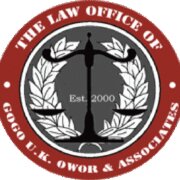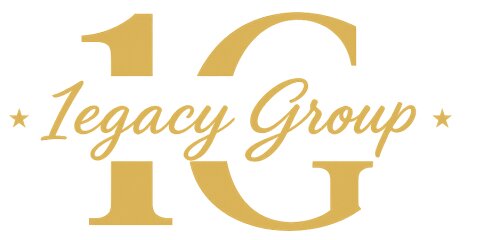Best Licensing Lawyers in Missouri
Share your needs with us, get contacted by law firms.
Free. Takes 2 min.
Or refine your search by selecting a city:
List of the best lawyers in Missouri, United States
United States Licensing Legal Questions answered by Lawyers
Browse our 1 legal question about Licensing in United States and read the lawyer answers, or ask your own questions for free.
- How do I legally protect my idea before selling or licensing it to a company?
- I have a makeup product idea that I want to sell or license, not the product itself. It is influenced by a product that was recently launched. Therefore, I want to sell/license to the company that launched said product. After some research, I contacted a patent attorney who explained that... Read more →
-
Lawyer answer by P.O OHIKHENA & Co
Good day,A patent will not be applicable since it's still an idea. You can go into an MOU(Memorandum of understanding) with the said company and also an NDA.You can contact me for my insight. Visit our profile and send us...
Read full answer
About Licensing Law in Missouri, United States
Licensing law in Missouri encompasses the state and local rules that regulate when and how individuals, businesses, and professionals may lawfully engage in certain activities. These activities can range from selling alcohol and operating a childcare facility to practicing fields such as law, medicine, or real estate. Missouri's licensing requirements aim to protect public health and safety by ensuring that only qualified applicants can legally carry out regulated tasks. Depending on the field, licenses may be issued by state agencies, city or county governments, or specialized boards.
Why You May Need a Lawyer
Navigating Missouri’s licensing laws can be complex. People may require legal assistance for various reasons, such as:
- Applying for a new license and understanding the eligibility requirements
- Renewing an existing license and addressing any changes in circumstances
- Appealing a denied or revoked license
- Handling disciplinary actions or compliance investigations by licensing boards
- Responding to allegations of operating without a valid license
- Understanding overlapping federal, state, and local regulations
- Addressing criminal records or past infractions that impact license eligibility
- Transferring a license from another state or jurisdiction
- Assisting businesses with specialized permits, such as liquor, food handling, or environmental licenses
A lawyer can provide guidance to avoid costly mistakes, speed up the process, and advocate on your behalf if any disputes or legal issues arise.
Local Laws Overview
Missouri’s licensing laws vary by license type and are governed by both state statutes and local ordinances. Key aspects include:
- State Licenses: Professions such as doctors, lawyers, teachers, contractors, and real estate agents are regulated at the state level. Each profession has its own licensing board with unique qualification standards and continuing education requirements.
- Business Licenses: Most businesses operating in Missouri need to register with the Secretary of State and may need local business licenses from city or county government. Specific activities, like selling alcohol, require additional permits.
- Special Permits: Certain activities, such as running a daycare, operating a food truck, or selling firearms, require specialized licenses or permits governed by state or local rules.
- Renewals and Compliance: Many licenses in Missouri require regular renewals, often annually or biennially. Licensees must comply with reporting, inspection, or training requirements to maintain good standing.
- Penalties: Operating without required licenses can result in fines, shutdown orders, criminal penalties, or civil lawsuits.
Frequently Asked Questions
What types of activities require a license in Missouri?
Many activities require a license, such as practicing a regulated profession (law, medicine, teaching), owning certain types of businesses (restaurants, salons), selling liquor, and operating childcare facilities. Always check with the appropriate agency or local government.
How do I apply for a professional license in Missouri?
Application processes vary by profession but generally require submitting an application, proof of education or training, passing relevant exams, paying fees, and sometimes undergoing a background check.
Who issues business licenses in Missouri?
Business licenses are often issued by city or county governments, while certain businesses require state-level permits. Registration with the Missouri Secretary of State is usually required to form a legal business entity.
Can a criminal record prevent me from getting a license?
A criminal record may affect eligibility, depending on the type and nature of the offense and the specific license. Some boards review applications on a case-by-case basis.
What should I do if my license application is denied?
If your license application is denied, you often have the right to appeal. An attorney can help you understand your appeal rights and represent you during hearings.
How often do I need to renew my license?
Renewal periods vary widely depending on the type of license. Some must be renewed annually or biennially, and continuing education or reporting may be required.
What happens if I operate without a required license?
Operating without a proper license can result in penalties such as fines, business closure, or even criminal charges, depending on the type of activity.
Can I transfer a license from another state to Missouri?
Some professional licenses may offer reciprocity with other states, but this is not guaranteed. You may need to meet Missouri-specific criteria before practicing.
How can I find out what licenses I need to start my business?
Contact your local city or county government and consult the Missouri Department of Revenue or Secretary of State for business registration and required permits. Legal counsel can also assist in identifying licensing needs.
What is the role of a licensing board in Missouri?
A licensing board regulates entry into specific professions, sets standards of practice, issues licenses, investigates complaints, and disciplines licensees who violate laws or regulations.
Additional Resources
Several state and local resources are available to assist with licensing questions and concerns in Missouri:
- Missouri Secretary of State - for business registrations
- Missouri Division of Professional Registration - for professional and occupational licenses
- Missouri Department of Revenue - for tax and some business permits
- Local city or county business licensing office
- Professional licensing boards, such as the Missouri Board of Nursing or Missouri Real Estate Commission
- Small Business Development Centers (SBDC) for business startup guidance
Next Steps
If you believe you require legal assistance with a licensing issue in Missouri:
- Identify the type of license you need and the issuing agency or board.
- Gather all necessary documents, such as educational records, exam results, or business information.
- Contact the relevant agency for application forms and guidance.
- Consider consulting with a Missouri attorney who specializes in licensing law or your specific industry to review your application, advise on eligibility, or represent you in disputes or appeals.
- If you have been denied or disciplined, seek legal help promptly, as appeal deadlines are often short.
Taking these steps can help ensure compliance with Missouri’s licensing laws and protect your professional or business interests.
Lawzana helps you find the best lawyers and law firms in Missouri through a curated and pre-screened list of qualified legal professionals. Our platform offers rankings and detailed profiles of attorneys and law firms, allowing you to compare based on practice areas, including Licensing, experience, and client feedback.
Each profile includes a description of the firm's areas of practice, client reviews, team members and partners, year of establishment, spoken languages, office locations, contact information, social media presence, and any published articles or resources. Most firms on our platform speak English and are experienced in both local and international legal matters.
Get a quote from top-rated law firms in Missouri, United States — quickly, securely, and without unnecessary hassle.
Disclaimer:
The information provided on this page is for general informational purposes only and does not constitute legal advice. While we strive to ensure the accuracy and relevance of the content, legal information may change over time, and interpretations of the law can vary. You should always consult with a qualified legal professional for advice specific to your situation.
We disclaim all liability for actions taken or not taken based on the content of this page. If you believe any information is incorrect or outdated, please contact us, and we will review and update it where appropriate.
Browse licensing law firms by city in Missouri
Refine your search by selecting a city.














